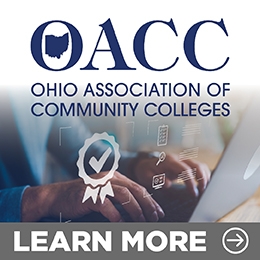
What NAR is doing for REALTORS/self-employed/small business
By Pete Kopf, National Association of REALTORS 2020 REALTOR Party Director; Ohio REALTORS 2017 President
NAR’s Federal Advocacy team has been working nonstop with policy makers in Washington -- with Congress and the Administration -- to ensure the interests of REALTORS and their clients are protected in any federal action in response to COVID-19. We’ve focused specifically on advocating for self-employed and small business relief in every emergency response package and will continue to do so as more proposals are considered. Below are some of the most recent actions we’ve been working on to date.
The Families First Coronavirus Response Act (FFCRA) created emergency paid sick and family leave for workers affected by COVID-19, including self-employed. Specifically, the legislation expanded Family and Medical Leave (FMLA) and created a new federal paid sick leave program for those impacted by COVID-19. The legislation created 100 percent refundable tax credits designed to provide an offset for small businesses and independent contractors to cover the cost of new paid sick and family medical leave benefits.
In the relief bills currently being considered by the House and Senate (phase three), there is a focus on getting aid to businesses via the Small Business Administration 7(a) loan program. They would increase funding significantly to this program ($350 billion), and businesses can get up to $10 million (based on previous year’s expenditures/income) which can go toward mortgage interest, rents, utilities, and payroll costs for businesses. A portion of these loans would be forgivable, including payroll costs. NAR worked with the drafters of the legislation to ensure that independent contractors and commission-based income will be eligible for the loans as well as the forgiveness provision. The bills provide a boost in funding to the SBA to help expedite these loans, require little in the way of up-front certification, and also give the Administration the authority to temporarily bring additional lenders into the SBA loan program to increase the options for businesses.
In addition, businesses can apply for SBA “Economic Injury Disaster Loans,” for up to $2 million to cover costs incurred as a result of the COVID-19 crisis.
The phase three proposed legislation still being considered by Congress also currently includes a delay of payment of employer payroll taxes. All of the payroll taxes of an employer and one-half of the self-employment taxes of a self-employed individual as well as one-half of the estimated taxes of the individual that arise between the effective date of the act and the end of 2020 would not be due to the Treasury Department until December 31, 2021 with the other half due by December 31, 2022, if passed.
There is also a specific section on relief for self-employed individuals in phase three proposed legislation to ensure these individuals could collect regular compensation under traditional state or federal unemployment laws, not typically available to independent contractors. This temporary Pandemic Unemployment Assistance program would last through December 31, 2020, and would provide compensation benefits to self-employed individuals impacted by COVID-19. The amount of compensation will vary based upon what the self-employed individual has earned in the past traditionally. The Department of Labor would administer this program with states’ unemployment insurance programs.
These federal solutions are evolving hourly and we are in constant communication with Congress and the Administration to make sure your voice is heard.

